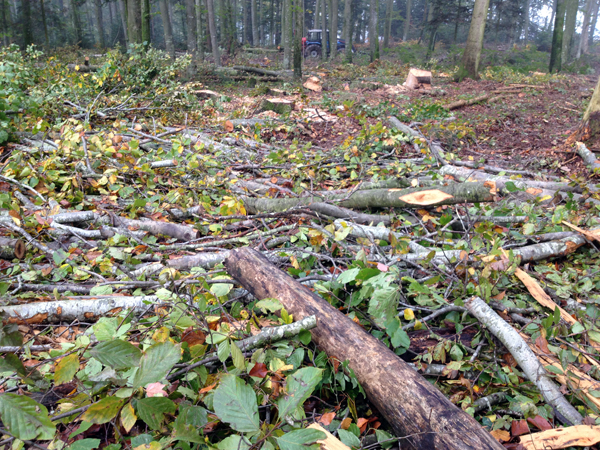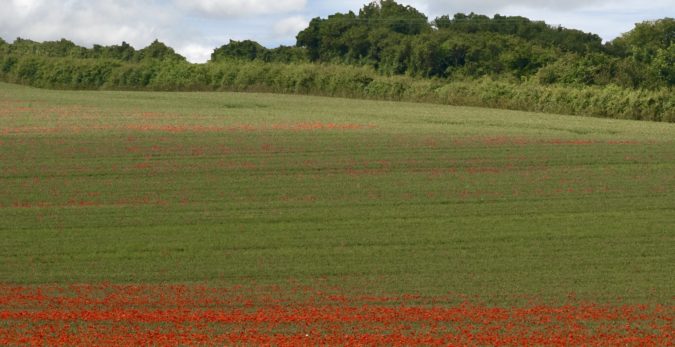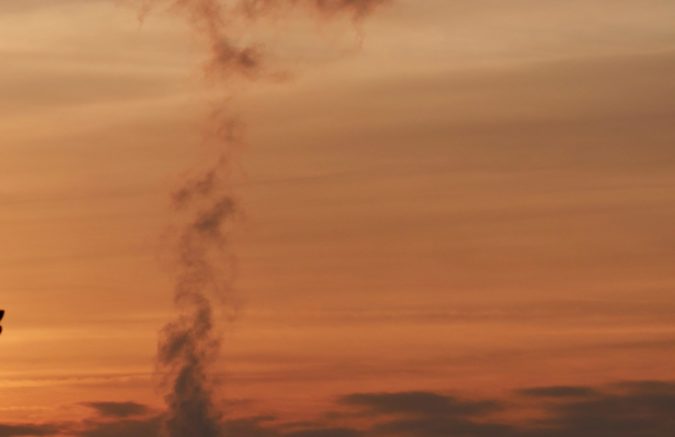Losing woodlands and forests.

Across the world forests and woodlands are under threat, suffering fragmentation and shrinkage. This is not good news for the plants and animals that rely on these habitats for their survival. In a large forest or woodland, animals can move around over considerable distances in search of food / partners - without having to leave the area that supports them. Similarly, plant seeds when dispersed are more likely to find the micro-climate that they need for germination and subsequent growth (humidity, shade, soil type etc). Some species have very ‘exacting’ requirements that can only be met in the heart of a forest or woodland. For example, there is a frog that is restricted to undisturbed mountainous forests in Borneo.
Sadly, recent surveys suggest that many forests continue to suffer from fragmentation / loss of area. The two main reasons for this loss are :
- clearance for agriculture (palm oil plantations etc) - this has mainly affected tropical and sub tropical area. Sometimes fires are used as a deliberate ‘tool’ to clear an area of forest so that the area can then be used for agriculture.

- wild fires - these have affected the Boreal Forests but also regions of the Amazon Basin. In areas like Siberia and Canada, drought and high temperatures have lead to extensive fires. (Zombie fires are underground peat fires that smoulder in the winter months but reignite when the ground dries in the Spring or Summer.) Recent times have seen extensive fires across Siberia, Canada, parts of the West Coast of America and Australia.
Woodlands have experienced fragmentation due to the expansion of agriculture, the building of motorways & roads, and the expansion of housing. Wild flower meadows have suffered even more dramatically - with some 90+% lost in relatively recent times.

Obviously fires are devastating locally, killing vast numbers of animals and plants. Fire also destroys the organic content of the soil and its complex microbial population. The plumes of smoke released by fires (such as those seen in Canada and Australia) spread extensively. The Canadian fires (883 fires raging at one point) left mile after mile of blackened forest, and forced hundreds of people from their homes. The smoke spread far beyond Canada’s borders, as far away as parts of Europe. New York City was ‘bathed’ in an ‘orange haze’ and experienced a hazardous level of air pollution.

The plumes from such fires are rich in black carbon soot. The soot particles absorbs solar radiation, keeping heat in the atmosphere. Recent analysis of smoke plumes indicates that there is also ‘dark brown carbon’. This consists of a previously unknown type of particle and whilst these particles absorb less light per particle than black carbon, they are approximately four times as many brown carbon particles in wildfire smoke (compared to black soot particles). There is also the suggestion that these brown particles retain capacity to absorb solar radiation for longer.
Comments are closed for this post.
Discussion
The real problem is overpopulation in all parts of the World. There are simply not enough resources to support the ever increasing population.
Hence destruction of Forest , intensive Farming, Over fished seas and Rivers, and pollution by humanity everywhere.
Measures to control the World population should be the priority of all Countries. We need open spaces and Woods.
So, so sad. I am currently (along with others) fighting to try and stop housing development on some local farmland and a road that will clip some valuable woodland containing veteran trees. We have noted red and amber listed birds, bats, foxes, deer, badgers, all in this small but rich oasis of life in a corner of our town.
The development is being pursued by vested interests even though our town is over and above housing build for project housing need. This is purely profit driven. We have been fighting for 3 years, but it looks as though we are just about to lose our fight. The desire for financial profit underpins everything that is destroying our beautiful world.
You said this very well, and I hope the warning gets heard. Out in BC, Canada we had a horrible year for forest fires from a combination of drought and poor forest management. The First Nations have been dealing with forest fires for thousands of years but I can’t imagine it was ever this bad. My heart goes out to the fire fighters and also the tree service experts who help to plant new trees to keep the cities green.

Think there was a warning about over-population and depletion of resources etc in “The Limits to Growth: A Report for the Club of Rome’s Project on the Predicament of Mankind” – back in 1971.
blogs
29 September, 2023